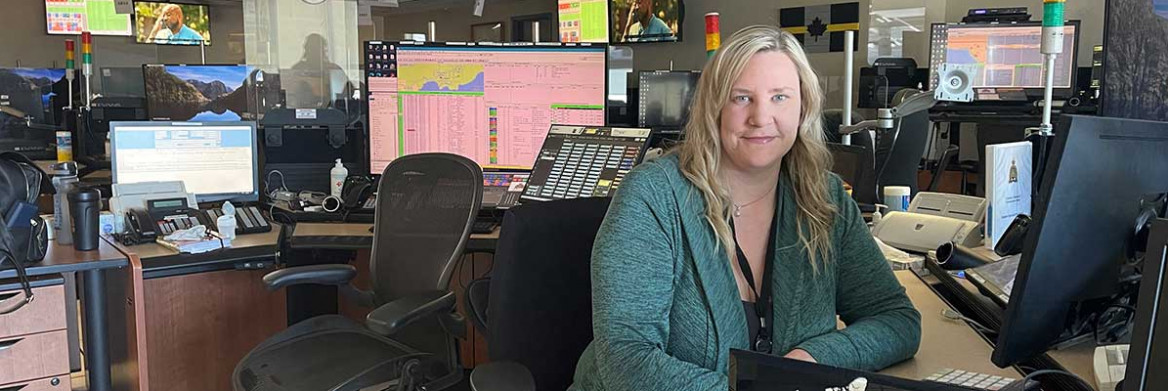Content warning: loss of life
No two days are alike at an RCMP Operational Communications Centre (OCC). While the variety and the volume of calls constantly changes, the goal for operators remains the same - to support officers who are helping people. Behind it all are supervisors who monitor and mentor their staff. Gazette writer Paul Northcott recently spoke to Michelle Van Marum, the RCMP's 2021 Telecommunications Supervisor of the Year, about her job in Edmonton, Alta.
What does an OCC supervisor do?
Here in Edmonton, we supervise up to 13 operators per shift, monitoring calls to make sure they are handled correctly. Calls are triaged to determine priority and then operators dispatch the information to officers so they have all the information they need before responding.
Along with training, there's mentoring. Supervisors work four 12-hour shifts each week - two days from 6 am to 6 pm and two nights from 6 pm to 6 am Then we have four days off, which is pretty nice.
What makes a well-run OCC?
Everyone pitching in to ensure the job gets done no matter what the task. To help do that, supervisors foster a positive attitude and show the operators their work is valued. The job operators are doing is one like no other. They are often one step ahead of what the caller needs. Often an ambulance will be dispatched before an officer asks for it. It makes all the difference knowing you have a team that will not only do their job, but take pride in their work.
Can you describe a memorable situation as supervisor?
An operator and I heard a shooting over the phone and a person was killed. I was performing a live quality assurance at the time, which is where we ensure all our standard operating questions are being asked. Initially the operator only thought she heard a gunshot, but I knew what it was. Throughout it all she remained calm and kept doing her work. One thing about OCC employees is we don't react in the moment. We get all the information we can and remain calm. After the call, you can decompress and take a moment. In fact, we can take employees off the floor if we feel the need. But I have an amazing team who felt ready to go back to work answering more calls for service immediately after this call ended.
What are some of the challenges of the job?
Human resources work, scheduling, and technology. Operators are working on phones, radios and in front of computer screens using different types of software. Sometimes things break and you just have to deal with it. But operators are good at multi-tasking so you just have to prioritize what needs to get done and do it as quickly as you can.
What's the most rewarding part of the job?
Knowing I'm working on a team that has each others' backs at all times. For me personally, it's rewarding to support operators to become the best they can be so they can help the police and the public. Seeing a colleague develop into a professional and confident operator who can handle critical incidents on their own is very satisfying.
